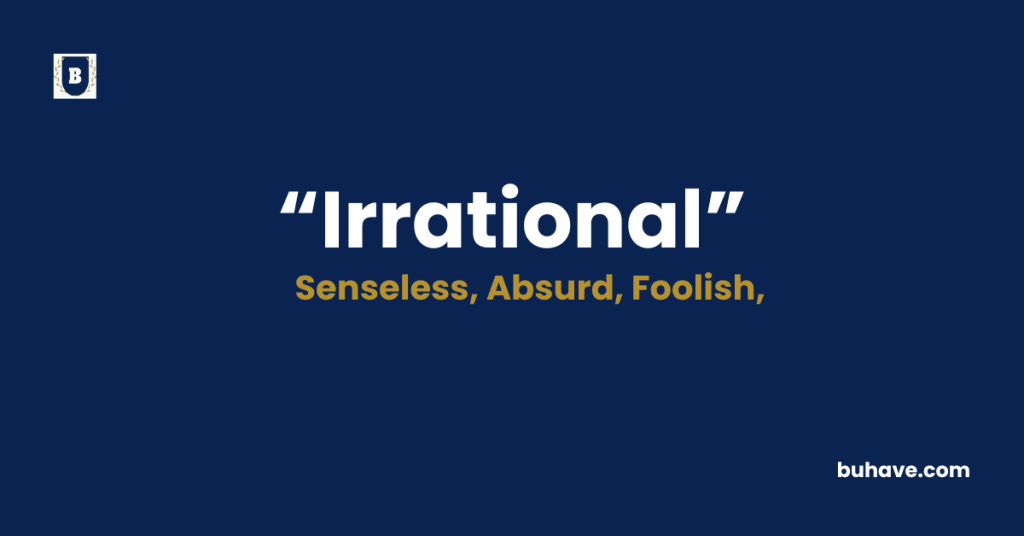The word ‘Irrational’ (Adjective) refers to something that lacks reason, logic, or clear thinking. It’s often used to describe thoughts, behaviors, or beliefs that are unreasonable or not based on facts. In this guide, you’ll learn the full definition, synonyms, antonyms, etymology, and real-life examples of how to use ‘Irrational’ correctly in sentences.
Irrational Explained in Depth
A complete and detailed guide to the word Irrational including meaning, definition, examples, etymology, synonyms, and antonyms.
Meanings of Irrational
‘Irrational’ describes actions, feelings, or thoughts that do not make sense when judged by logic or reason. When someone is acting irrationally,
Definition
Irrational means not logical or reasonable, especially when referring to actions or decisions that are driven by emotion rather than thought. It also has a mathematical meaning, referring to numbers that cannot be expressed as a simple fraction.
Etymology
The word “irrational” comes from the Latin prefix “in-” (not) and “rationalis” (reasonable), which is derived from “ratio” meaning reason. It entered Middle English from Latin in the 15th century and has retained both emotional and logical senses ever since.
Example Sentences
- It’s irrational to expect success without putting in the effort.
- His argument was filled with irrational assumptions and lacked evidence.
- Their reaction was completely irrational, given the situation.
- In math, π (pi) is an example of an irrational number.
Irrational Synonyms
- Unreasonable
- Illogical
- Emotional
- Absurd
- Baseless
- Unfounded
- Preposterous
- Senseless
- Unwise
- Groundless
Irrational Antonyms
- Rational
- Logical
- Reasonable
- Sensible
- Sound
- Coherent
- Thoughtful
- Intelligent
- Well-founded
- Analytical
FAQs about Irrational
Here are some frequently asked questions (FAQs) about the word “Irrational”
1. Can irrational behavior be controlled?
Yes, with awareness and emotional regulation, people can learn to manage irrational behavior over time.
2. What is an irrational fear?
It’s a fear that doesn’t match the level of actual danger, often rooted in anxiety rather than logic—like a fear of harmless insects.
3. Is “irrational” only used negatively?
Generally yes, but it can also describe something quirky or unpredictable in a neutral context.
4. Can emotions make people irrational?
Yes, strong emotions like fear, anger, or excitement can cloud judgment and lead to irrational decisions.

















